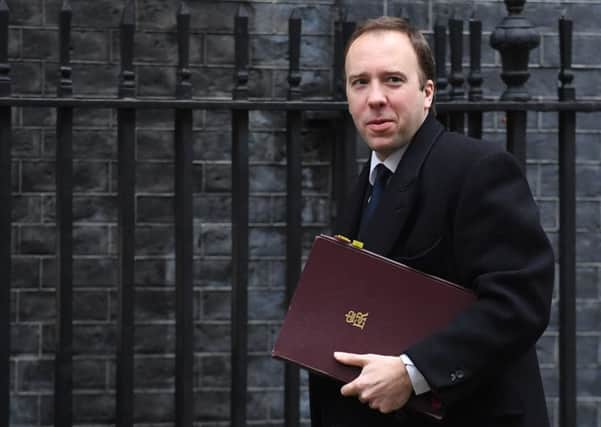Jayne Dowle: Politicians failing to ease the load on society’s forgotten carers


Many of us accept it as a return of the love that our parents or grandparents gave us as children. This does not mean that it comes without sacrifice. It might not be what we planned, but the obligation will fall on our shoulders. And this is not always an easy burden to juggle along with a job and other family responsibilities.
It’s not surprising then to learn that 600 people a day in the UK are giving up work to take care of their relatives, according to a new report by the charity Carers UK. That’s almost 22,000 individuals every year who leave the workforce and cease being economically active; from then onwards they will make no contribution to the economy through income tax and national insurance contributions and may rely instead of the paltry ‘Carers’ Allowance’ of £64.60 a week.
Advertisement
Hide AdAdvertisement
Hide AdI don’t think I need to go on about what an insult this figure is to those who spend their lives 24/7 tending to an elderly or ill relative. However, what is even more insidious is that the whole arrangement offers no incentive or compromise to allow a carer to carry on working. You can claim Carers’ Allowance whether you’re in or out of work, but if you try to hold down a job at the same time, you currently can’t earn more than £120 a week. The Government is ‘generously’ raising this ceiling to £123 a week from April, promising that it will improve the standard of living for those who opt to care for another person and work at the same time.
Three pounds a week? Apart from Universal Credit, there are no benefits which underline more the massive gulf between political perception and the harsh daily reality of those it affects.
I daresay that some of our Government Ministers are lucky enough to find themselves in the position of being able to throw money at the problem. Anyone with the means can pay for a streamlined silver service of private carers, who will bring delicious hot meals three times a day to their aged parents and offer companionship, driving duties and so on. However, the truth is that most families are forced to rely on a precarious hotch-potch of over-worked care agency staff who barely have time to put the key in the door and bang a ready-meal in the microwave before they are off to their next client.
My elderly friend Betty, who recently celebrated her 92nd birthday, still lives alone but has daily carers who supplement the time her son gives to look after her. Many evenings she is put to bed by 6.30pm, simply because her carer has so many other Bettys to see to. I’m not holding out much hope that the current Government will make headway. Despite the electioneering slogan of ‘caring Conservatism’ the track record in recent years has hardly covered Tory politicians in glory.
Advertisement
Hide AdAdvertisement
Hide AdI remember the former Health Secretary, Jeremy Hunt, making ham-fisted overtures about how we should all follow the model of multi-generational Asian families and embrace older relatives into our lives. This generalisation ignores several key facts; not all modern Asian families live in close proximity to each other, many families, of any background, are hugely dysfunctional and not everyone has children who can turn around and look after them when they can’t take themselves to the lavatory.
Given this woeful approach, elder care really is the kind of policy area that a decent Labour opposition should be seizing as a gift. The Shadow Minister for Social Care, Barbara Keeley, started out promisingly but hasn’t made much of a recent impact. Speaking last summer in response to the Government’s Carers’ Action Plan, she promised that the next Labour Government will show carers that they are valued. Then she detailed an investment of £8bn in social care, a rise in Carers’ Allowance by about a tenner a week to match Jobseekers’ Allowance and an updated Carers’ Strategy.
Strategy. Action Plan. They’re all meaningless words if your elderly mother has another fall in the middle of the night and you have to drive at speed from one end of the country to the other to look after her, missing work for several days and possibly jeopardising your job in the process. Precious few employers offer carers’ leave or breaks.
The problem is that ‘care’, like council tax, has become one of those elephant in the room issues which politicians are wary of tackling properly for fear of uproar. Almost any solution put forward involves personal sacrifice of some sort, from higher taxes to selling the family home. The voters don’t like that, note policy-makers, so we won’t mention it. It’s time they did. Talk about cradle to grave. It’s all very well focusing on early years education and nursery subsidies, but social care has been compromised for far too long.